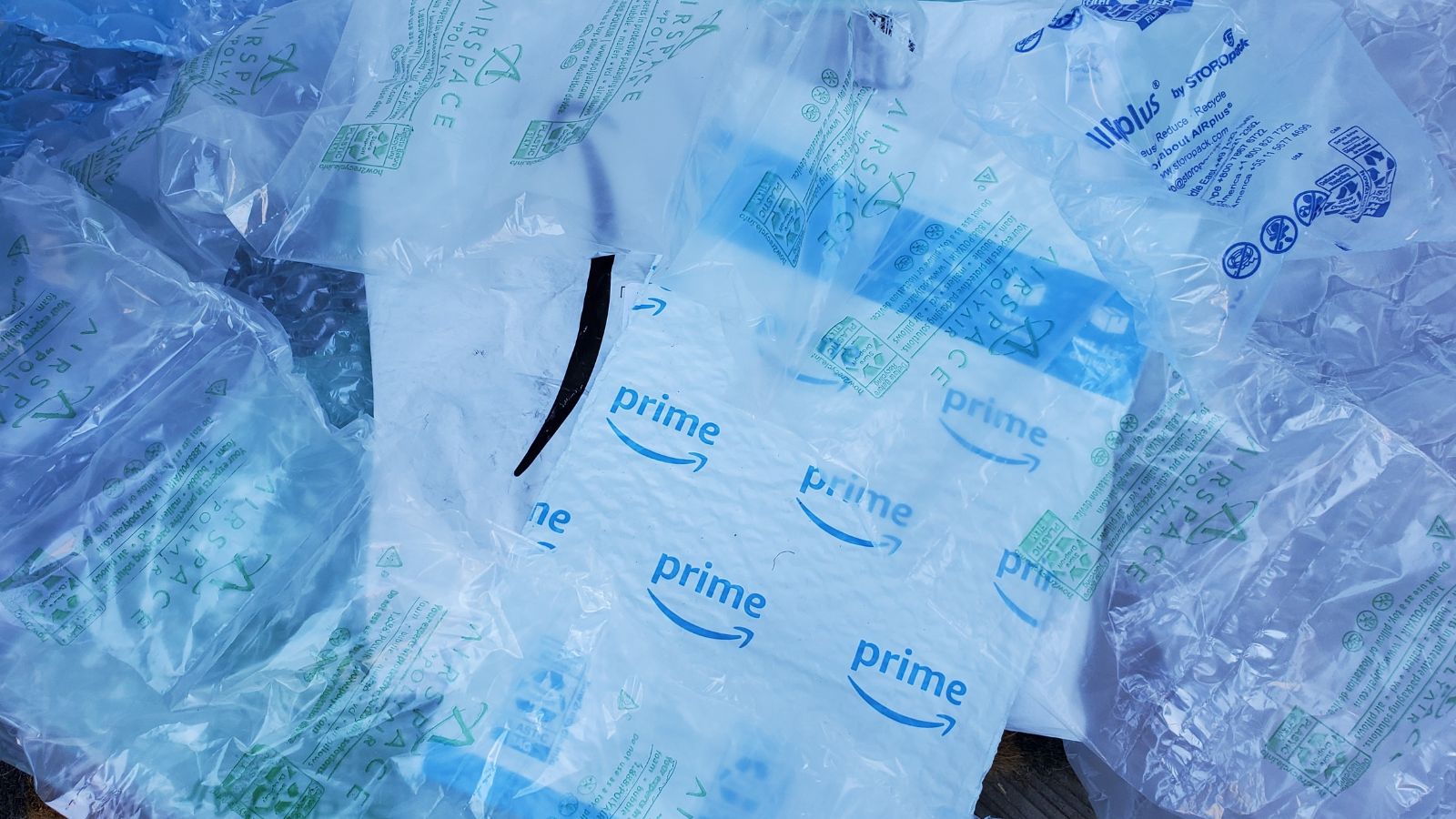
Turning plastic waste into plastic lumber isn’t recycling
Most of Amazon’s plastic packaging isn’t being recycled, and some might end up as material for plastic decking instead.
Nearly all of America’s trash could be composted and recycled. But we’ve got a lot of work to do to get there.
Most of us put our recyclables out for collection. But it’s going to take more than individual action to deal with our trash problem. Only 24% of our trash actually gets recycled, and only 9% gets composted. We can do better. Together we can share information, resources and push our leaders to build a better recycling and composting system.
Most of Amazon’s plastic packaging isn’t being recycled, and some might end up as material for plastic decking instead.
Have you ever thought about where clothing goes after you’re done with it? Or the impact that it has on climate change?
(Philadelphia, PA ) --A new report issued by Pennsylvania Resources Council (PRC) and PennEnvironment Research & Policy Center outlines how Pennsylvania's solid waste laws haven't kept up with the growing problems facing local recycling programs, trash disposal, and significant changes in the items making up Pennsylvania's waste stream. Act 101, the landmark recycling law that made Pennsylvania a leader in 1988 needs multiple updates to meet the demands of today’s economy. Together with Eunomia, the groups found that the full potential of this recycling and waste management law in the Keystone State has not been met. PRC and PennEnvironment called on Act 101 to be modernized to address the Commonwealth’s growing waste problem, improve public health, clean up the environment and create jobs for Pennsylvanians.
Building on successful programs in dozens of countries and recent action taken by Maine and Oregon, the Colorado Senate passed on Wednesday a bipartisan producer responsibility bill.
A recent investigation uncovered a bombshell for our environment over at Amazon: The company is destroying millions of unused or returned products.
The Fortune 50 retailer Target announced a new goal Tuesday to reduce its use of virgin plastic 20 percent by 2025 across its own brand frequency products.
